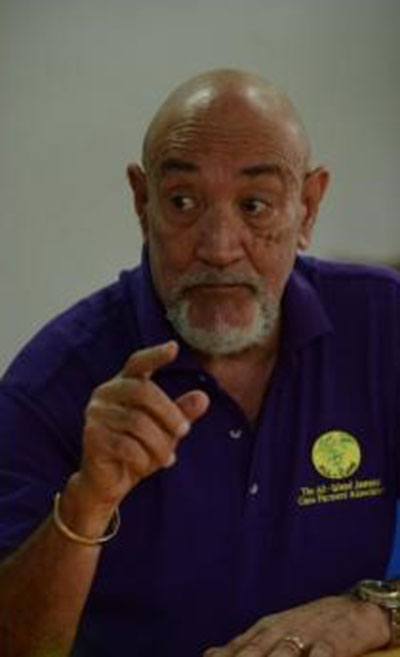(Jamaica Gleaner) The All-Island Jamaica Cane Farmers Association (AIJCFA) has landed a deal with the Government to lease more than 3,600 acres of the land surrounding the Long Pond Sugar Factory in Trelawny to be sublet to cultivators affected by the closure of the historic facility.
Dubbed Trelawny Pride, lands extending from Hyde Hall to Georgia, and farther to Clark’s Town, will be sublet to 90 farmers who have applied, said project director Allan Rickards.
Under the Trelawny Pride project, the farmers who supplied raw material to the problem-plagued Clark’s Town sugar cane facility will have the opportunity to lease prime farmland but will have to agree to cultivate the crops recommended by the Rural Agricultural Development Authority (RADA) on 70 per cent of the property.
A private investor will grade and package crops produced by the farmers, according to specific contractual agreements, and provide a reliable market for their crops, The Gleaner has learnt. A-grade quality products will be sold to hotels and the export markets, B grade to the local market, and C grade will be processed into purées and juices.
“This was not a plan that was hastily put together. It has been in the making for some time, so I am comfortable with the idea and applied for 15 hectares,” said one Trelawny farmer, who only gave his name as Bully. “As farmers, we decided that we would no longer be held at ransom by the uncertainties surrounding Long Pond (Sugar Factory), so I am happy to see that the plan is coming together.”
The project was first mooted in 2017 at a press conference, held on the same day the operators Everglades Farms announced a US$38-million deal with United States-based Arrakis Development to transform the Long Pond Sugar Factory into a cogeneration facility after several failed attempts and billions of dollars were spent to bring the plant to international standard.
The Hussey family acquired Long Pond in a package that included Hampden Estates, which is also located in Trelawny, for $135.5 million in 2009.
Under the deal, the new owners were required to maintain 60 per cent of the leased lands for sugar cane production or related products for 15 years.
The deal covered the two factories and 40 hectares of land they are surrounded by, plus an additional 7,100 hectares, leased for US$40 per hectare per annum for the first 10 years of the agreement.
A reported $2-billion refurbishing exercise followed, and by 2012-2013, Long Pond was selected as the most improved factory.
Long Pond’s production subsequently peaked at 11,103 tonnes of sugar from 132,981 tonnes of cane in 2014-2015, but followed up with a dismal 3,027 tonnes of the sweetener from 66,421 tonnes the following year.
“This is a brilliant idea, I am just hoping that it can be sustained,” said Carmen Fullerton, a 37-year-old hairdresser in the nearby community of Duncans. “For us, Long Pond was the pulse of the communities in this area who are yet to recover.”
“It has separated families, because my husband eventually went into construction after years as a cane farmer, going anywhere he can find work to make ends meet … . It has been hard,” she told The Gleaner.
Last year, the Ministry of Agriculture announced that plans were in place to establish five agro-economic zones at strategic points across the island. Each zone will consist of a complex with facilities for grading, packaging, processing, cold storage, and drying.
According to Rickards, the Trelawny Pride project will utilise the template developed at the first economic zone established recently at Holland Estate and will be managed by an oversight committee made up of several interest groups, including RADA, the AIJCFA, and Sugar Company of Jamaica Holdings.






